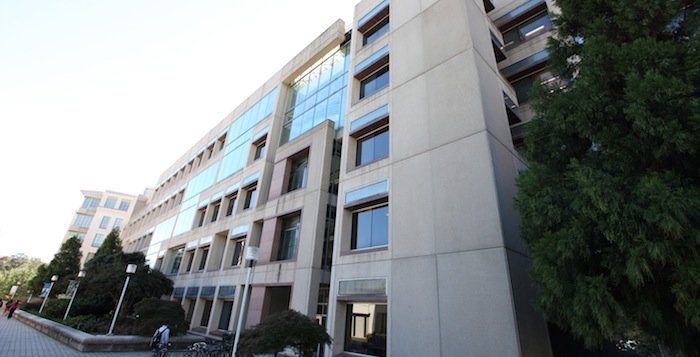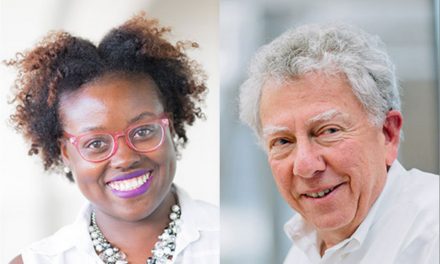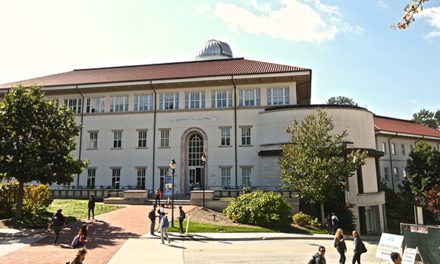By Lydia O’Neal
Senior Staff Writer
Environmental Protection Agency (EPA) Chief of Staff Gwendolyn Keyes Fleming (’93L) delivered a lecture on her department’s projects and policy actions to a room of around 30 students and faculty in the Rollins School of Public Health’s Claudia Nance Rollins Building on Thursday afternoon.
Keyes Fleming, an Emory alumna who formerly served as DeKalb County’s first African American district attorney and solicitor general, began by acknowledging that, in spite of her title, she lacks a science background.
The former DeKalb prosecutor joined the EPA, she said, “because I saw this as one more way to protect a community – not from crime, but by looking at environmental protection and health.”
Advocacy, Keyes Fleming added, was what drew her to law in the first place.
“Environmental justice – that’s what communities are all about,” Keyes Fleming said. She was appointed EPA Region Four (Atlanta) Administrator by President Barack Obama in September 2010 and rose to Chief of Staff for EPA Administrator Gina McCarthy in June 2013.
“You have to make sure everybody, even the poor, has access to clean air and clean water, and we at the EPA believe a rising tide lifts all boats,” she said.
The School of Law alumna spotlighted several of the EPA’s early community projects, including the Atlanta Beltline, a redevelopment of a formerly contaminated railway corridor, and Atlantic Station, once a steel facility responsible for much of Atlanta’s air pollution.
“If business was going as usual [at the steel facility], Atlantic Station would never have been built,” she said, adding that the Department of Transportation was barred from constructing a highway bridge to the site at the time, as Atlanta had not yet met the Clean Air Act standards. The project was completed in 2005 and now boasts a residential population of 3,000 and an employee population of 3,500, according to the EPA website.
Keyes Fleming also highlighted the EPA’s Clean Power Plan, announced in June under much criticism (and in some cases, litigation) from coal industry advocates and environmental activists alike.
“The benefits greatly outweigh the costs,” she said, estimating the coal emissions-cutting plan’s payout at between $55 and $93 billion by 2030.
As far as the EPA’s future actions, Keyes Fleming warned that climate change, contrary to the criticism of partisan opponents of the EPA, “is not just going to affect us in the future – it’s affecting us right now.”
She cited increases in precipitation, mentioning the recent snowstorm in Buffalo, N.Y.; wildfires ravaging the western U.S. late last summer; the melting of Alaska’s permafrost, an icy soil layer crucial to the region’s ecosystem and natural disasters such as Hurricane Sandy and California’s extreme droughts, which she estimated to have cost the U.S. $65 billion and $30 billion, respectively.
“Who’s footing the bill for this?” she asked the group.
Next, she turned to the environmental policy of China’s government, with whom Obama sealed landmark negotiations last week.
“Their public health and environmental issues have taken center stage,” she said of Beijing. She added that the U.S. had begun placing air pollution monitors at its embassies as a way to gauge environmental harm in countries like China.
“The Chinese government wasn’t too happy about that, but hey, it’s an embassy – it’s U.S. soil,” she said.
But as far as Beijing’s environmental policy strides, she said later, “I think it’s going to get better. I think there is movement in the right place.”
After answering questions from students and faculty, Keyes Fleming joined the group for snacks at a reception in a nearby hall. At 7 p.m., she kicked off Emory’s Green Networking Night dinner in Cox Hall Ballroom. She plans to join the Law School for a “lunch and learn” discussion this afternoon.
At Keyes Fleming’s Rollins talk, College senior Jordan Kolpas said the lecture made him feel hopeful for the future of the environment.
“There’s a big challenge, but it’s not unsolvable,” Kolpas, a biology and environmental science major, said of the job lying ahead of the EPA. Keyes Fleming’s appearance, he added, “shows a lot about Emory’s dedication to reducing environmental impact.”
Karen Levy, assistant professor of Environmental Health at Rollins,said she thought Keyes Fleming “hit the main points on issues of climate and health in the U.S.”
“I thought it was great that she touched on climate change in China and the U.S. in the face of development in both of our countries,” Levy said, when asked which issue Keyes Fleming discussed was the most important. “It’s great that she was on campus, really.”
Keyes Fleming, who listed “a sense of ethics” as the greatest thing she took from her time at Emory, said she prided herself on the University’s sustainability programs.
“It makes me proud to tout my alma mater,” she said.
– By Lydia O’Neal, Senior Staff Writer
The Emory Wheel was founded in 1919 and is currently the only independent, student-run newspaper of Emory University. The Wheel publishes weekly on Wednesdays during the academic year, except during University holidays and scheduled publication intermissions.
The Wheel is financially and editorially independent from the University. All of its content is generated by the Wheel’s more than 100 student staff members and contributing writers, and its printing costs are covered by profits from self-generated advertising sales.







